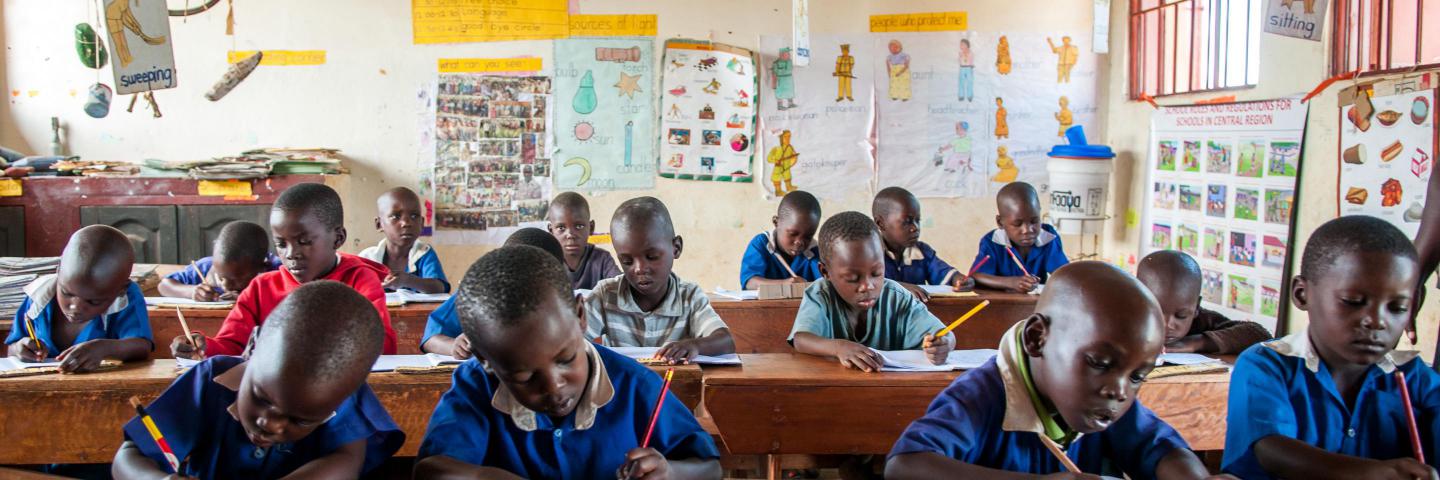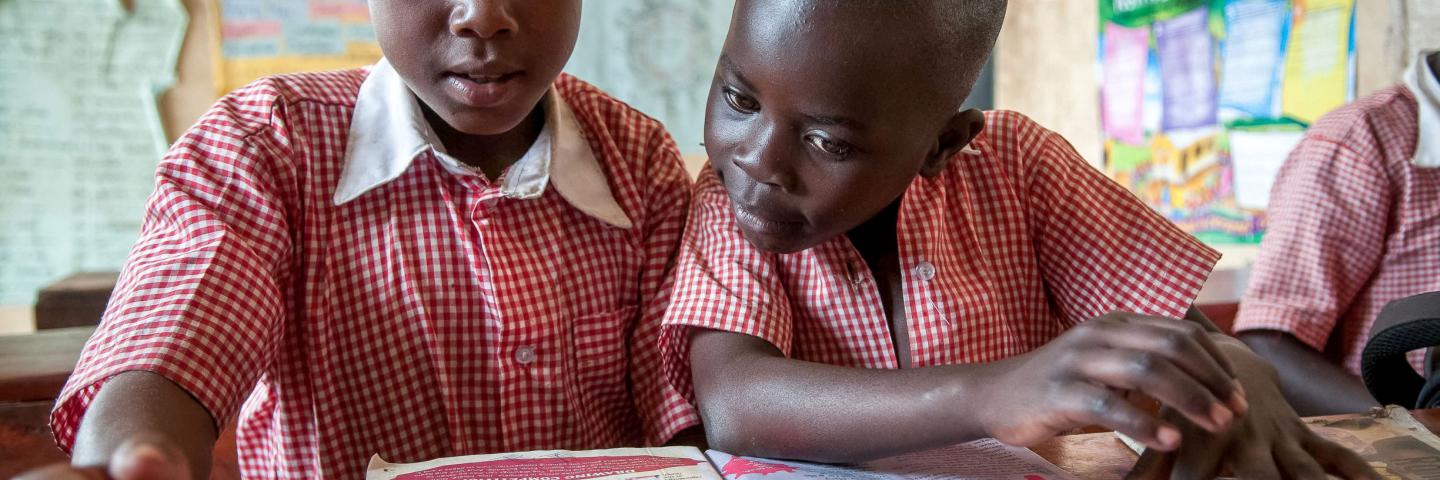

The introduction of Universal Primary Education in Uganda in 1997 has seen enrolment almost triple. However, there are worrying signs that progress is stalling. Only 20 percent of children actually complete primary school. Many drop out due to poverty and other factors. Schools are often dangerously overcrowded and lack basic resources, with teachers overwhelmed and in need of support. As a result, the quality of learning is often poor. Education is the foundation of a child’s future, yet millions of children in Uganda – especially in the poorest areas – are being left behind.
Early Childhood Development (ECD)
ECD is an investment for life. 90 percent of brain development takes place before a child’s fifth birthday, and children who participate in ECD get a head start in their emotional and cognitive development, and are more likely to do well in school and become productive adults. Yet only 13 percent of children in Uganda get this opportunity. We aim to ensure that deprived girls and boys aged 0-6 years have access to holistic and inclusive ECD. We prepare children to transition effectively into primary school, train caregivers and provide scholastic and teaching materials.
WATCH: A brand new start for early learning in West Nile
Basic Education
We implement both formal and non-formal basic education programmes, targeting children who would otherwise not access school. We aim to ensure children have a quality learning environment by training teachers and education officials; working with communities to increase parental engagement; building infrastructure such as classrooms, libraries and gender-appropriate washrooms; and providing materials such as textbooks and desks. We advocate to government and duty bearers for inclusive education and support for non-formal schools.
WATCH: Improving learning in Uganda's cattle corridor
Education in Emergencies (EiE)
We run Accelerated Education Programmes (AEP) which target children aged 10-18 who dropped out of primary school – whether due to conflict, poverty, child marriage or other reasons. AEP uses a specially designed condensed curriculum to teach the seven years of Ugandan primary school in just three years, and enable the youth to complete their primary certification. Children who complete AEP can transition back into the formal school system or on to vocational training to learn skills that help them get decent employment.

Last year, our education programmes supported 167,130 girls and boys across Uganda, working in 124 primary schools, 91 ECD centres, and 49 AEP centres. We work with a range of partners to pilot new ideas, and scale up best practices and innovative approaches that have been tested and proven to work over time.
High-impact approaches
Partnerships and innovation
We host the innovative NGO Education Consortium, which works with a range of partners to get thousands of out-of-school refugees and Ugandan children back into education. It aims to herald a new way of working more collaboratively, inclusively and sustainably.
We explore new ways of using technology to improve the qualty of education, such as locally designed, culturally relevant video games on solar-powered tablets which teach children basic numeracy and literacy.
READ: Gaming technology offers an exciting way to improve learning
Inclusive education
Girls often drop out of school or miss classes when they reach puberty, as they lack sanitary pads and schools often do not have gender-appropriate washrooms. We teach girls how to make low-cost reusable pads from local materials and build new sanitation facilities. As a result, more girls are staying in school. We also work with partners to make schools more accessible to children with disablities, and help teachers adapt their methods for children with learning difficulties.
READ: Why menstrual hygiene matters for keeping girls in school